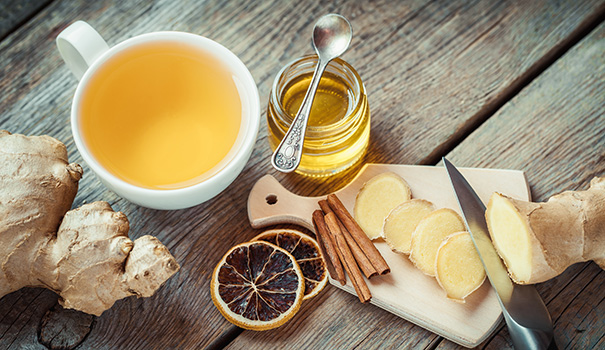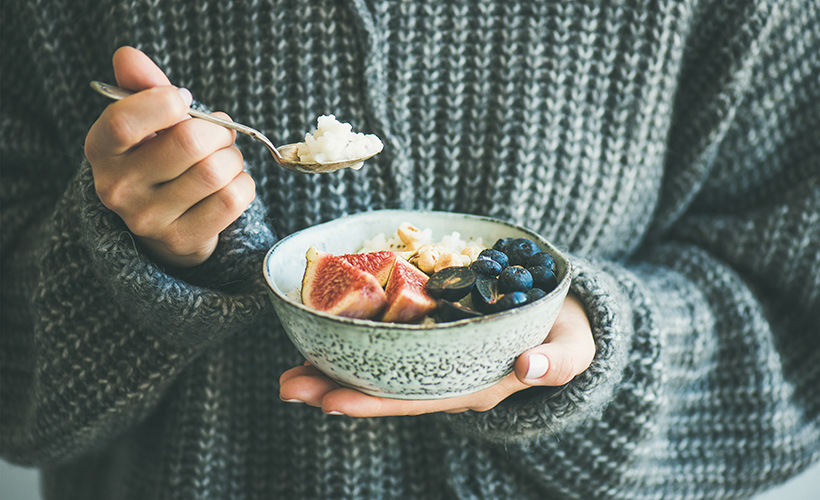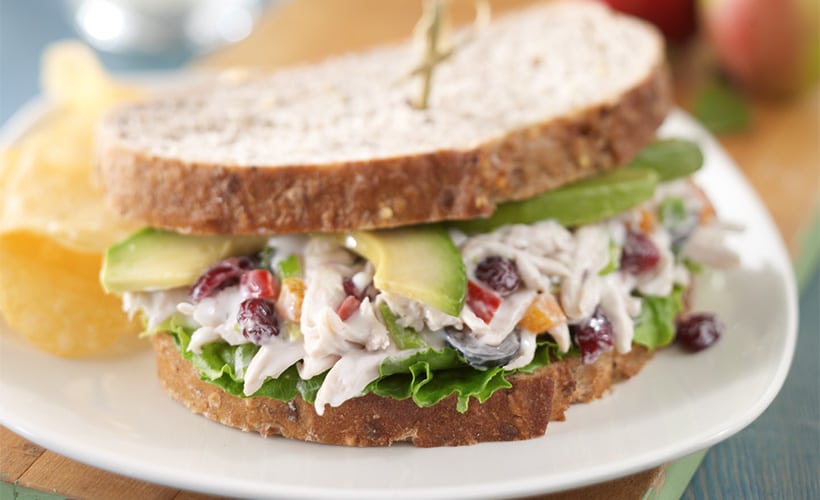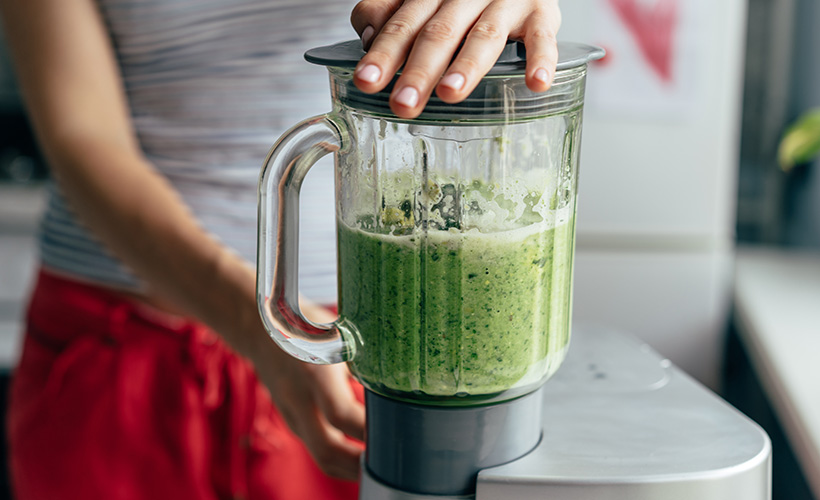Hello, Winter! Hello, Cold! Hello, Snotty Nose! Hello, Sore Throat! We’ve all now (somewhat reluctantly) welcomed in winter…a season where some rather unwelcome guests find their way into the family home. Good nutrition through the cold season is an essential element in both preventing winter illnesses and if we do get struck down, giving our bodies the best chance of fighting the nasties. Grab a hottie, a cup of lemon tea, find somewhere cosy and read on for some nutrition tips to help keep the winter bugs at bay…
Eat Immune-Boosting Foods: While a healthy diet can’t obviously stop a cold in its tracks, ensuring you have a healthy immune system can minimize the duration of a virus. One way to boost the immune system and keep it firing is by including foods rich in vitamin C. These foods include; tomatoes, citrus fruits, capsicums, green leafy vegetables, frozen berries, kiwifruit and broccoli. Zinc is also a crucial mineral for a healthy immune system. Foods that are high in zinc include; legumes, beans, shellfish, nuts, eggs and wholegrains.
Keep Hydrated: When it’s cold out, we have a natural tendency to decrease our water intake. However, keeping up with drinking 8 glasses of water a day is equally important through winter as in summer. If cool water isn’t appealing during the chilly months, try making up a thermos of herbal tea to sip on throughout the day. Having an adequate fluid intake can also help to ease the symptoms of colds and flu, as it can help to prevent the lining of the throat and nose from drying out.
Look After Your Gut: Equally important as looking after our immune system is looking after our gut health. Did you know that the two are intrinsically linked? 70% of our immune system is actually located in our gut! Having a diet rich in vegetables and fruit, and including fibre-rich whole grains will help to keep your gut functioning at its best. It’s also important that your gut has a healthy balance of good bacteria (probiotics) to ensure a healthy gut microbiome. While some people opt for probiotic supplements, we can also look after our guts by eating foods that naturally provide us with live bacteria (probiotics). Probiotics can be found in fermented milk products, such as yoghurt and kefir, kombucha, tempeh, kimchi, miso or sauerkraut.
Regularly Eat Garlic and Onions: Garlic has been shown to help reduce the duration of colds and prevent their onset. Garlic contains compounds that can help the immune system to fight germs. Onions, leeks and chives are full of valuable ingredients that have antibacterial and immune-enhancing effects.
Eat Seasonally: Try to opt for regional and seasonal fruits and vegetables, where possible. Valuable nutrients can be lost by lengthy transport and storage times for out-of-season fruits and vegetables. Winter varieties such as pumpkin, kumara and all kinds of cabbage are particularly good winter options. With fruits, choose varieties such as apples, pears, persimmon, mandarins, oranges, and tamarillo. Frozen fruits are also great options, as they have usually been shock-frozen shortly after harvest, and so their important nutrients are saved. Frozen berries of all varieties are an excellent addition to your winter diet, providing beneficial vitamin C and antioxidants!
Eat Warming Foods: As a general guide, try to include lots of warming foods and drinks into your diet. Think spices, chili, ginger, hot soup (check out my Chicken Soup Recipe here), herbal teas, warm porridge etc. These help to warm your organs and muscles internally, stimulate blood circulation and metabolism. When you have a cold, it’s important to stay warm and warming foods can help!
Kids Care: When it comes to the younger ones in the family, the above advice applies also. In addition, Manuka honey is a wonderful natural remedy that can help both children and adults alike. A teaspoon of Manuka honey twice daily is an easy remedy to convince kids to take! Manuka honey has antibacterial properties, so it’s beneficial to consume when suffering from a common cold, sore throat and/or cough. If kid’s don’t feel like drinking fluids when they are unwell, a squeeze of lemon juice with a teaspoon of honey in warm (not hot!) water can be a great way to ensure that they stay hydrated. Kids naturally seem to listen to their bodies a little more when they’re unwell, so don’t be alarmed if they turn off their food for a little bit. Often adults tend to seek comfort with food when they are unwell, whereas kids often realise intuitively that a little break from heavy meals may just be what the doctor ordered! When this happens, offer them healthy snacks, often. Fruit usually still goes down a treat when they’re unwell, and offers a good dose of vitamin C too.
With the cooler weather, adults often find it increasingly hard to stick to healthy eating habits too. We crave comfort food and often it’s stodgy winter fare, so hopefully the list above is helpful when you’re reaching for the next warm treat! Although there are no quick fixes to prevent colds and flu from striking, the tips above can help you and your family to kick those nasties out the door and say “Goodbye” faster than usual. Enjoy!


















Community